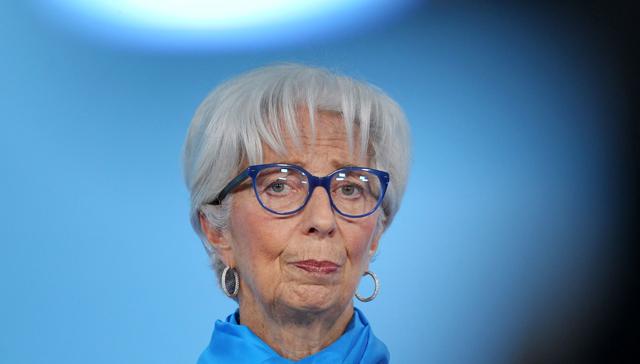You are here
ECB sets new inflation target, eyes climate in strategic overhaul
By AFP - Jul 08,2021 - Last updated at Jul 08,2021
FRANKFURT — The European Central Bank (ECB) on Thursday set a new inflation target and integrated climate change considerations into its monetary policy strategy, the first major overhaul of its goals and tools in almost two decades.
The bank will in future take into account companies' environmental credentials when considering whether an asset can qualify as collateral or be purchased by the Frankfurt institution.
It will also begin carrying out "climate stress tests" to assess the Eurosystem's risk exposure to climate change, as concerns grow over the accelerating warming of Earth.
Drastic changes in the environment could have an impact on employment, output or even financial stability, the bank said, arguing that taking into account climate factors was therefore well within its mandate of ensuring price stability.
Measures agreed by the 19-country single currency zone will have teeth, ECB Chief Christine Lagarde promised.
"It's not just words, it's not a speech. It's a commitment of the entire governing council with delivery time, deliverables and pursuit of objectives," she told journalists.
The sea change came after an 18-month strategic review -- the first since 2003.
Besides consulting financial experts, the ECB also heard from the general public, civil society organisations and academia in the review.
While bringing in a climate change strategy for the first time, the ECB at the same time threw out its old inflation target of "close to, but below" 2.0 percent, a goal that was agreed in 2003 when rapid price increases were a real concern.
Inflation in the eurozone has stayed stubbornly low for years despite unprecedented economic stimulus from the ECB, keeping the target well out of reach and fuelling calls for a rethink.
On Thursday, the board said it had agreed on a "two percent" target.
'Symmetric'
"The Governing Council considers that price stability is best maintained by aiming for a 2 per cent inflation target over the medium term," it said in a statement.
The bank called it a "symmetric" target, meaning that it was just as "undesirable" to fall below it as it was to overshoot -- essentially scrapping the one-sided connotation of the previous target that it was better to undershoot than to surpass the mark.
Nevertheless, the bank conceded that there might be a "transitory period in which inflation is moderately above target".
Lagarde took pains to stress that the ECB did not go as far as the US Federal Reserve in offering more leeway for inflation fluctuations and that overshooting of the rate would be strictly temporary.
The Fed last year said it would allow inflation to rise above 2.0 per cent "for some time" before raising interest rates, to boost employment.
Doves
Fears had been running high that the ECB would begin turning off its cheap money taps to keep consumer prices down, as inflation is expected to rise beyond two per cent with the economic recovery in Europe gathering pace.
The bank is currently operating an extremely expansionary policy, with ultra-low interest rates and a 1.85-trillion-euro ($2.2-trillion) pandemic emergency bond-buying scheme, aimed at keeping borrowing costs low to spur spending and investment.
But Holger Schmieding of Berenberg bank said through Thursday's announcement, the ECB was "signalling an even stronger tolerance of a temporary overshoot than we had expected.
"In one respect, the ECB is giving its strategy a dovish tilt under current circumstances of ultra-low nominal and real interest rates," he said.
Those favouring generous support to the economy are dubbed "doves" and those backing tough love are considered "hawks".
Related Articles
FRANKFURT — European Central Bank (ECB) chief Christine Lagarde on Thursday said it was "too early" to consider winding down pandemic suppor
FRANKFURT — Eurozone banks are set to pay back on Friday just under 300 billion euros ($311 billion) in cheap loans paid out by the European
FRANKFURT — European Central Bank (ECB) President Christine Lagarde said on Monday she would not "venture" into speculation over interest ra


















